Let's settle the great salted vs unsalted butter in baking debate. When to use salted butter, when to use unsalted butter, and what is the difference anyway? Here is everything you need to know.
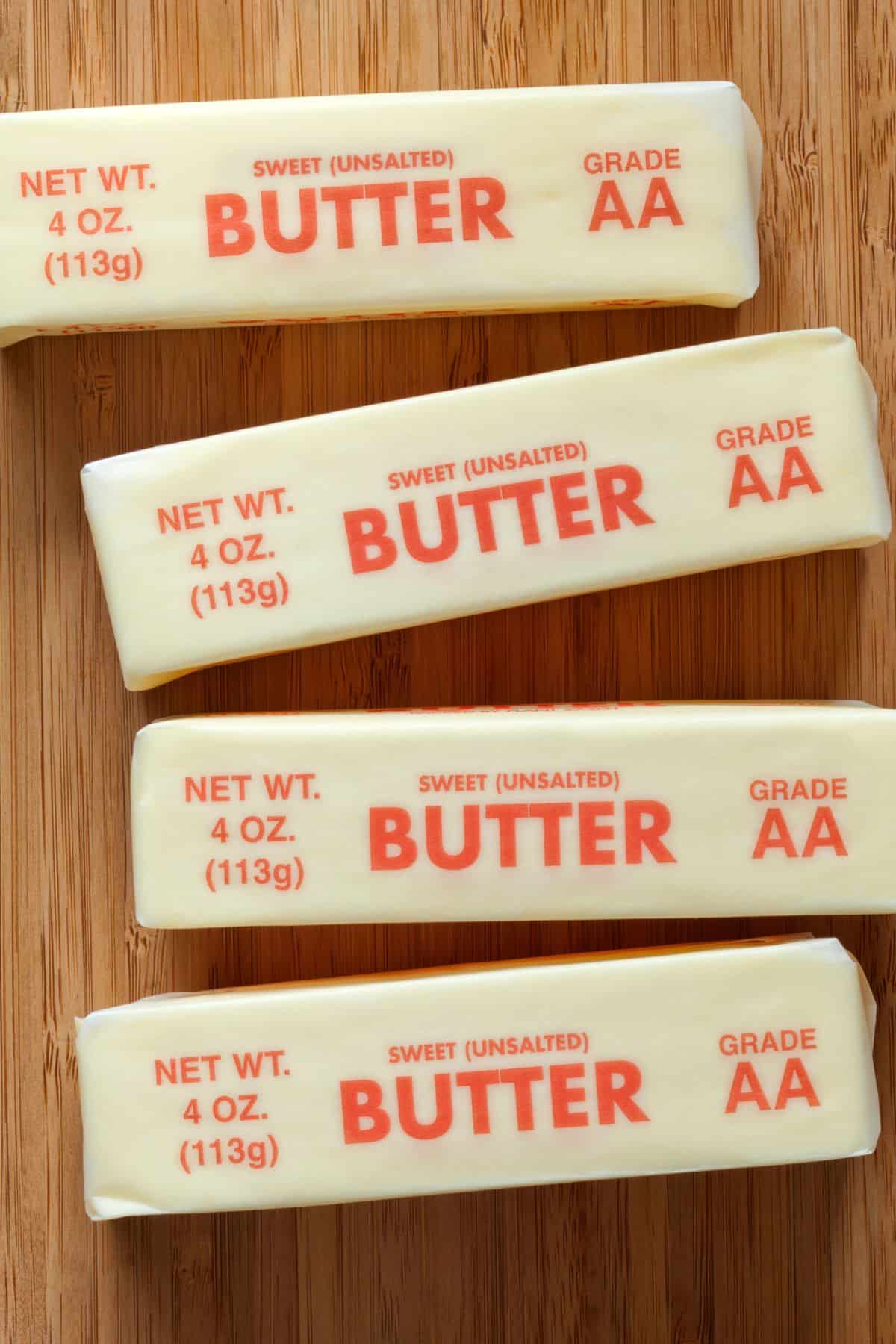
Jump to:
- The Main Difference Between Salted Butter and Unsalted Butter in Baking
- Is salted butter better than unsalted?
- When to Use Unsalted Butter
- When to Use Salted Butter
- What happens if you use salted butter instead of unsalted
- How to substitute salted butter for unsalted butter?
- How to substitute unsalted butter for salted butter?
- How to substitute butter in baking?
- Salted vs Unsalted Butter FAQ
- More Baking Guides
Salt and butter are both key ingredients in baking. Butter adds essential fat as well as moisture and delicious rich creaminess and decadent flavor. Salt enhances that flavor, and too little salt and things can taste a little bland, or overly sweet. But too much salt can completely ruin a dish. So should you use salted or unsalted butter in baking? Keep reading for my guide full of all the essential information and my expert advice.
The Main Difference Between Salted Butter and Unsalted Butter in Baking
Butter is a dairy item produced using milk that comprises butterfat, milk proteins, and water. It is made by churning cream or milk to isolate the fat until it transforms into a partially solid emulsion. Remember that you can also make homemade butter too!
Salt can then either be added or not, to produce unsalted or salted butter. That's the only main difference! The USDA states that salted butter contains around 643 milligrams (mg) of salt per 100 grams of butter.
Salt is a preservative meaning that salted butter can be left out on the counter for 1-2 days in temperatures up to 70°F (21°C), whereas unsalted butter should always be refrigerated. Salted butter also has a longer shelf life than unsalted butter. Both unsalted and salted butter can be frozen.
If a recipe calls for unsalted butter, it’s probably because the recipe has been tested with unsalted butter. So for optimal results, you need to use the same ingredients. After all, baking is all about precision. And in all my recipes, I recommend tips like using an oven thermometer and weighing ingredients with a digital scale for best results, and never relying on guesswork.
Is salted butter better than unsalted?
Not inherently, no! It all depends on what you're using it for. Also, some people have to follow low-sodium diets for health reasons, so salted butter is not a good option for them.
It is also important to note that each butter brand has its own recipe for butter, and a tablespoon of salted butter from one company will have a different amount of salt from another. For example, Kerrygold Irish butter (which is a high-quality brand of European-style butter excellent for baking) contains 100mg of salt per tablespoon. Yet Straus Lightly Salted only contains 45mg. If you were making French pastries, Puff pastries, Pie crusts or even cookies and brownies which traditionally contain a lot of butter (yum) the total amount of added salt from the butter would vary hugely depending on which brand you bought.
So in conclusion, when thinking about salted butter vs unsalted butter in baking, I personally believe that unsalted butter is better for baking. This way, you are always in control of the quantity of salt in your recipe.
Whilst salt is crucial in all baking recipes (particularly when it comes to chocolate desserts like chocolate caramel cupcakes or very sweet desserts like Biscoff brownies), it is important to add the salt in a controlled manner and know how much you are putting in.
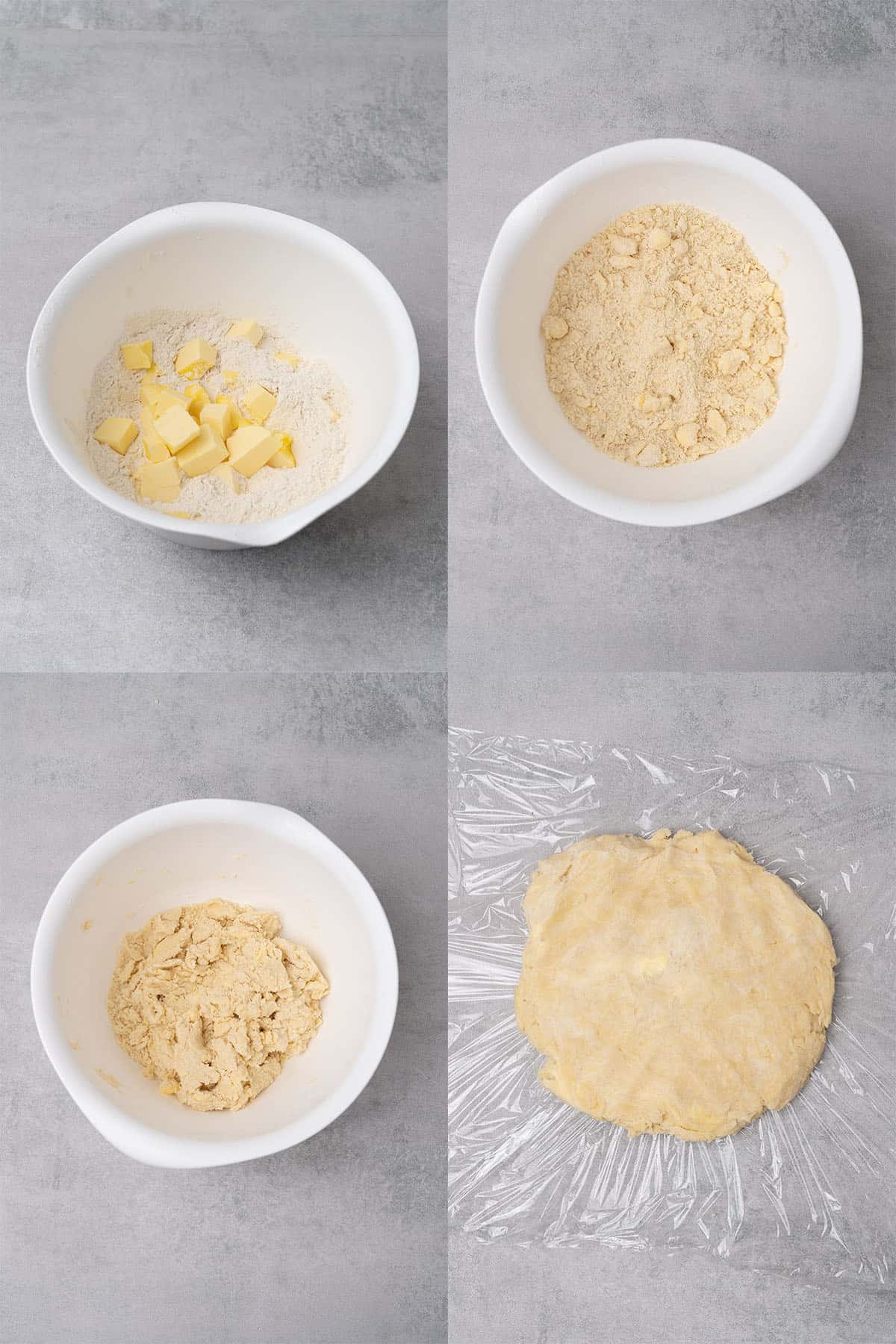
When to Use Unsalted Butter
I always recommend using unsalted butter in baking. Butter is a major ingredient in lots of baking recipes, therefore, it is of greater importance that you know exactly how much good quality salt has gone into the recipe. So I would definitely use unsalted butter in these cases.
It is also worth mentioning that the quality of salt in salted butter varies too. If you use salted butter, you have no control over what type of salt is in your recipe. If the quality of ingredients is important to you, then being able to control whether or not you're using table salt, Himalayan rock salt, or sea salt (to give 3 examples) should matter too.
When to Use Salted Butter
If the butter is less of a significant ingredient in a baking recipe and there are many other ingredients to compensate, it should be fine most of the time to use salted butter if unsalted butter is unavailable, if you cannot access unsalted butter.
But overall, salted butter is best for spreading on items like toast or banana bread. It will bring out the other flavors and taste delicious!
I also recommend using salted butter when cooking savory dishes, where it is easier to taste along the way. What's more, you can season further at the point of service too depending on your preference.
What happens if you use salted butter instead of unsalted
If you use salted butter instead of unsalted, your recipe will turn out saltier! So you will simply need to use less salt in the rest of the recipe to keep things balanced. For example, if a cake recipe calls for half a teaspoon salt and you use salted butter, perhaps use a quarter teaspoon of salt instead. How much salt to add exactly is the issue itself and difficult to advise on due to different brands and country specifications.
Need butter in a rush? Here's how to soften butter quickly.
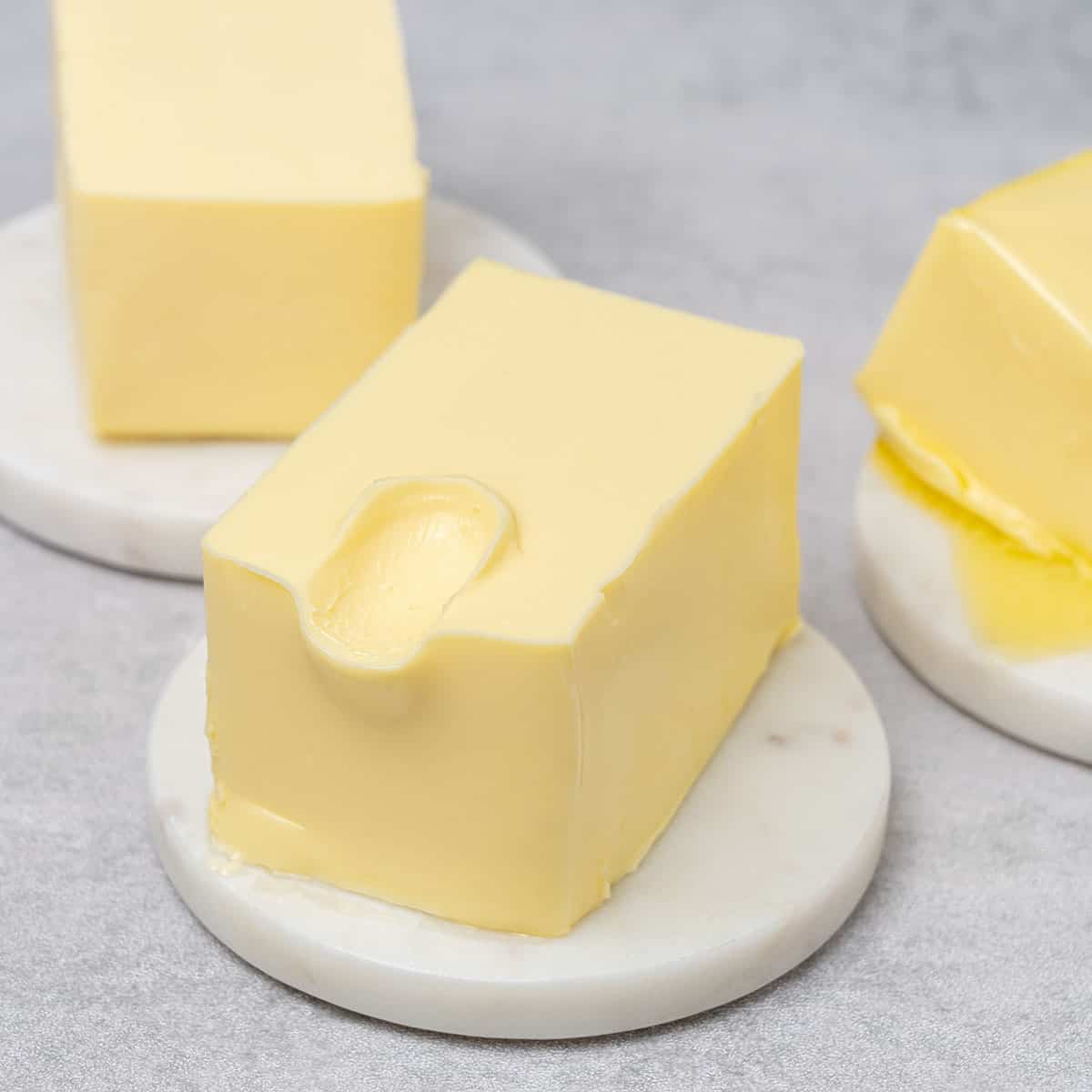
How to substitute salted butter for unsalted butter?
When it comes to substituting unsalted butter with salted butter in baking, it is still one of the best substitutions to use as they basically work identically. The properties they bring to a bake are exactly the same, it is only the saltiness that is different.
However, if your recipe demands unsalted butter and you only have salted butter, then you'll need to adjust the quantity of any additional salt. It is hard to give a precise amount, as I have stated already that salted butter brands all differ. Therefore always try to buy unsalted butter and use salted butter for savory dishes.
As a general rule: add ¼ teaspoon of salt per ½ cup of butter.
How to substitute unsalted butter for salted butter?
To substitute salted butter for unsalted butter you also do not need to make any changes to the weight/volume of butter. However, you will need to adjust how much additional salt you put in the recipe and add slightly more to compensate for the lack of salt in the unsalted butter.
As I have explained, it is tricky to give a set formula for the amount of salt you'll need to add when substituting unsalted butter for salted butter. But I'd recommend being cautious, as too much salt will ruin the result.
As a general rule: reduce ¼ teaspoon of salt per ½ cup of butter.
How to substitute butter in baking?
You can definitely bake without butter! Whether you're baking around a dairy intolerance or have simply run out. But it's very important to find a substitute as butter plays such an important role. Simply removing butter from a recipe will result in dry, crumbly, and unpleasant-tasting baked goods.
Butter contains around 20% water and 80% fat, so it is important to compensate for both these qualities when searching for a replacement. Some common butter substitutes include oil, vegetable shortening, Greek yogurt, and lard. For example, for a cup of unsalted butter, use a cup of vegetable shortening. The conversions vary depending on the butter alternative so make sure to check out our butter substitutes article where we cover all these details.
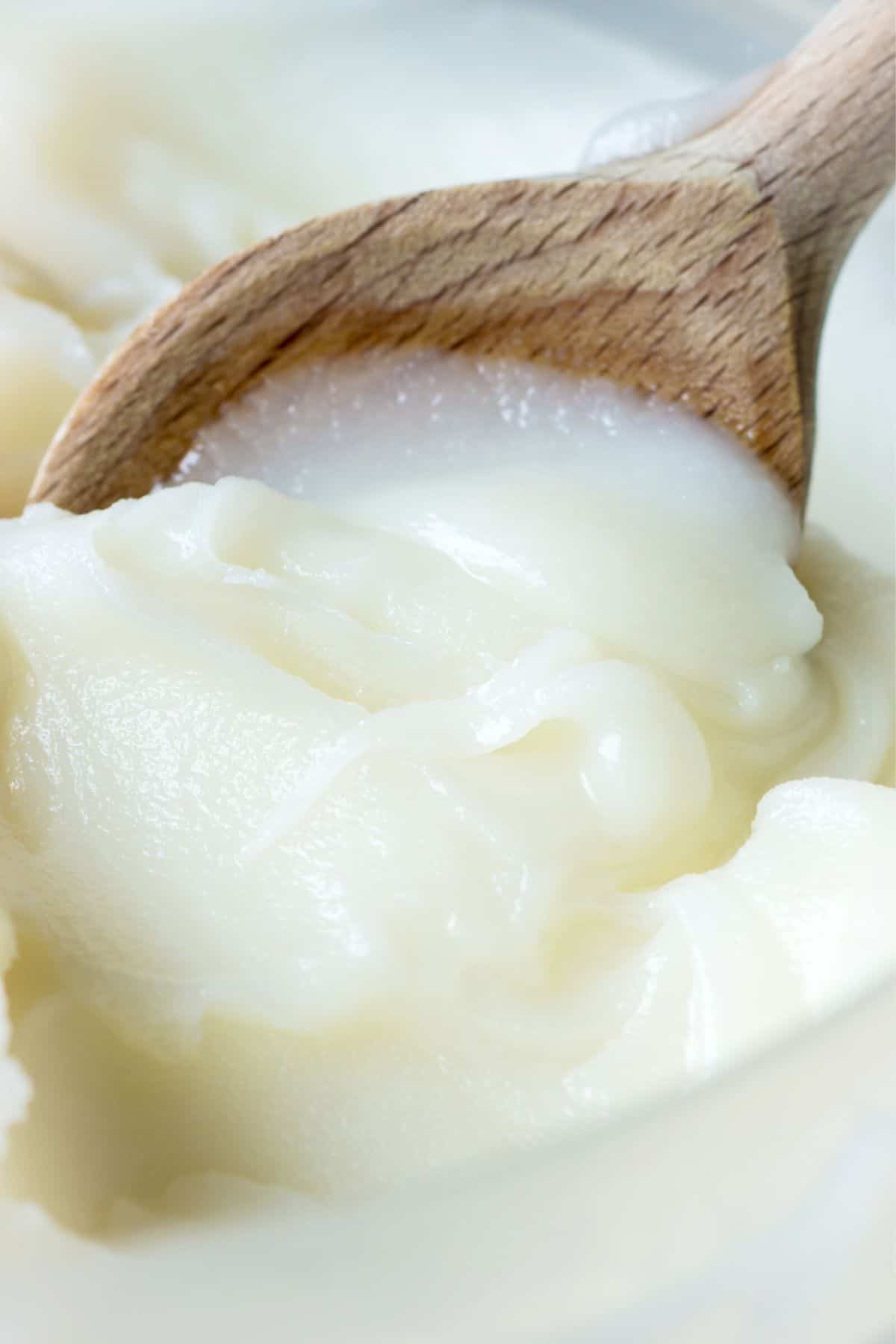
Salted vs Unsalted Butter FAQ
It is best to use unsalted butter for baked goods. Salted butter is better for cooking savory recipes or as a spread on muffins, brioche, or toast.
Always assume the recipe calls for unsalted butter so that you can then control the quality and quantity of salt in a recipe.
Ideally, you want to use unsalted butter for making cakes, however, if unsalted butter is not accessible for you, you can try baking the cake with salted butter but make sure to reduce or entirely omit the salt from the recipe.
I'd recommend using unsalted butter. My chocolate chip cookie recipe calls for unsalted butter, but I then add a small amount of salt to the cookie dough. A limited amount of salt in sweet recipes helps to balance the sugar and overall taste.
It is hard to give exact measurements as it depends on the brand, as well as what you want to use it for. As a general rule: add ¼ teaspoon of salt per ½ cup of butter.
Yes, butter freezes very well. Frozen salted butter will last for up to one year, whereas frozen unsalted butter will last for up to four months.

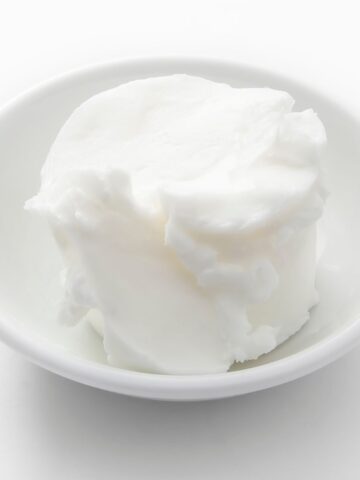
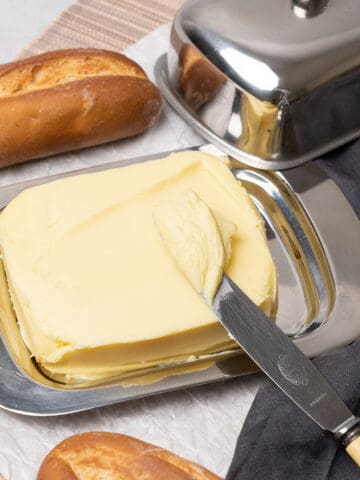
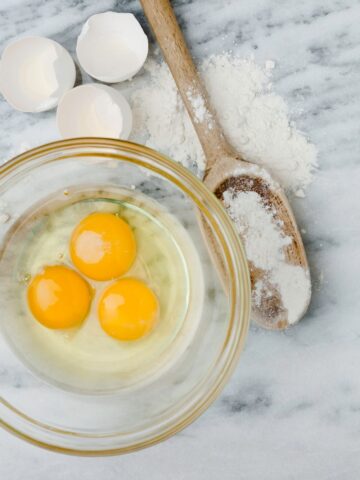
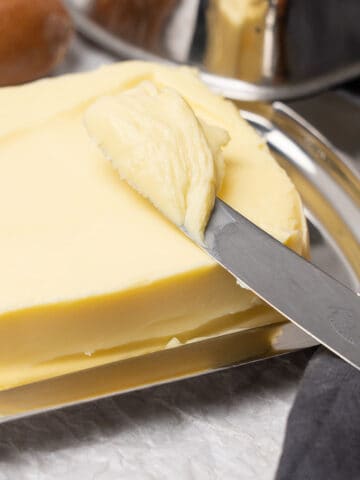
Leave a Reply